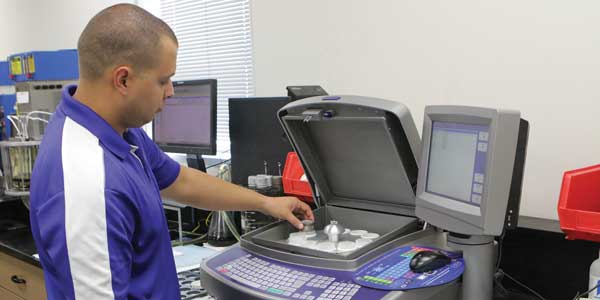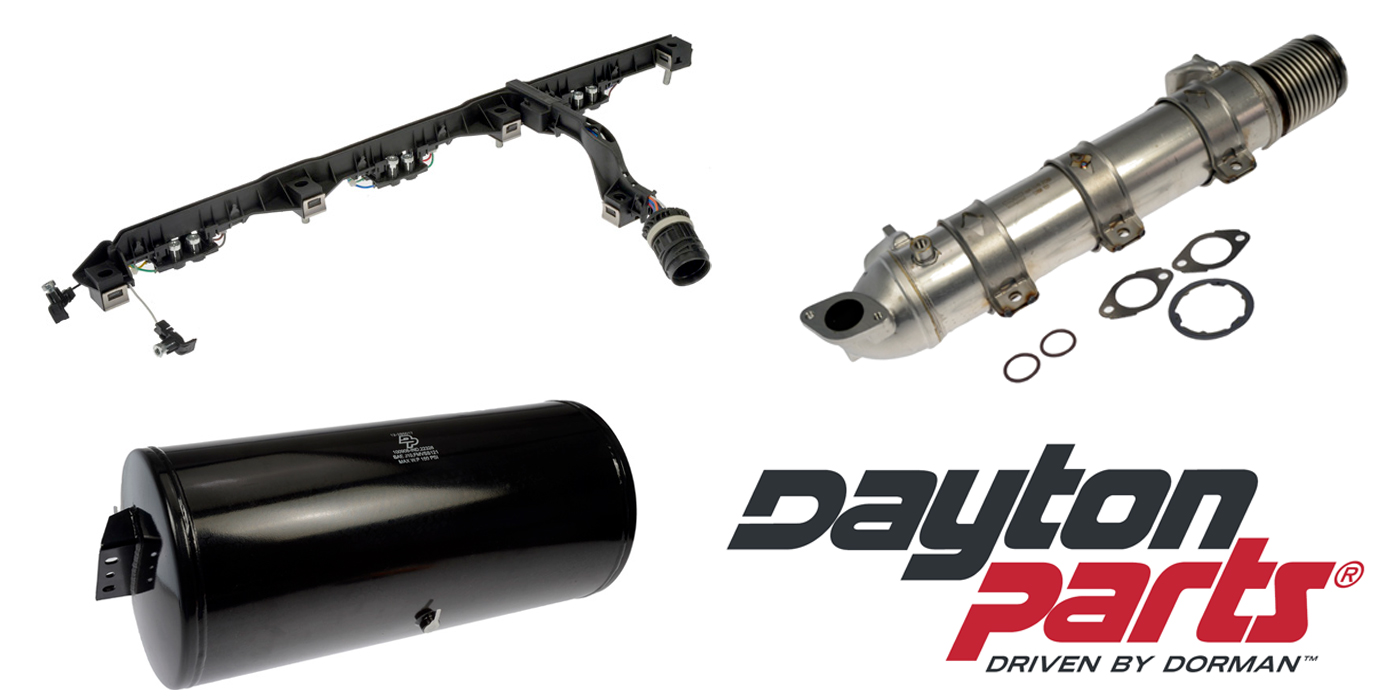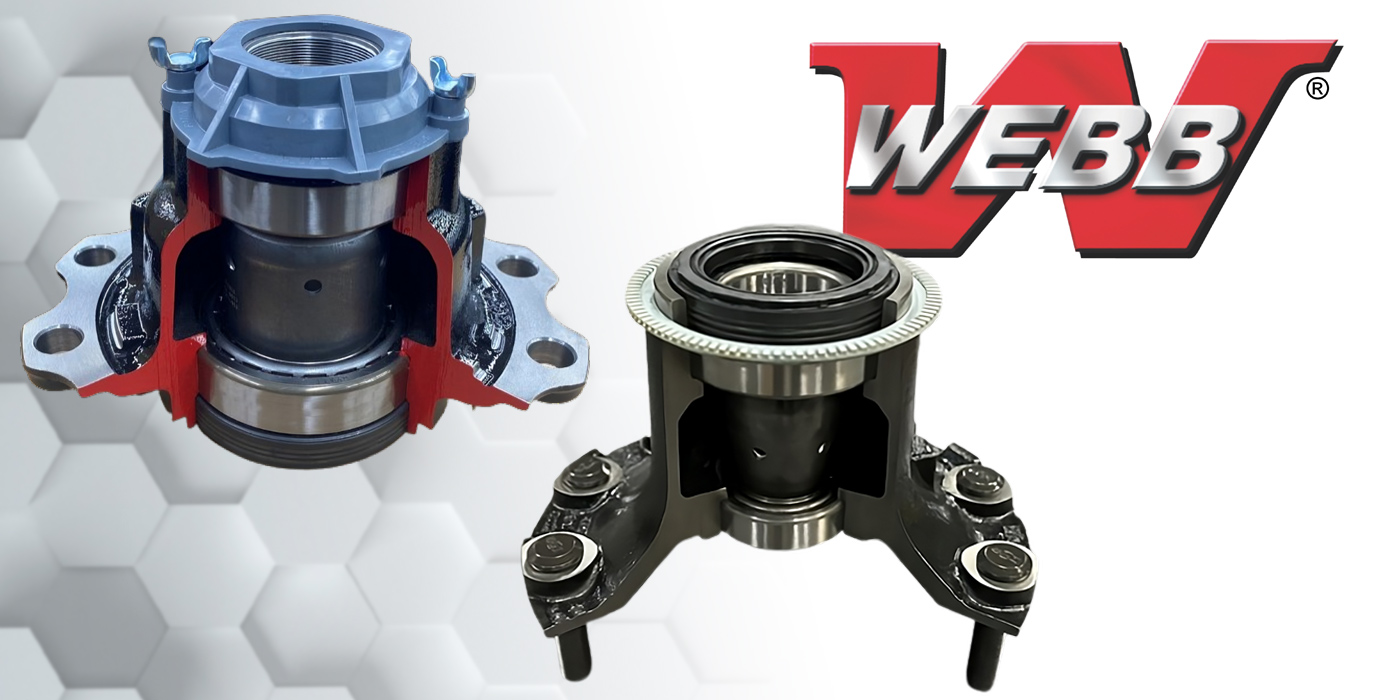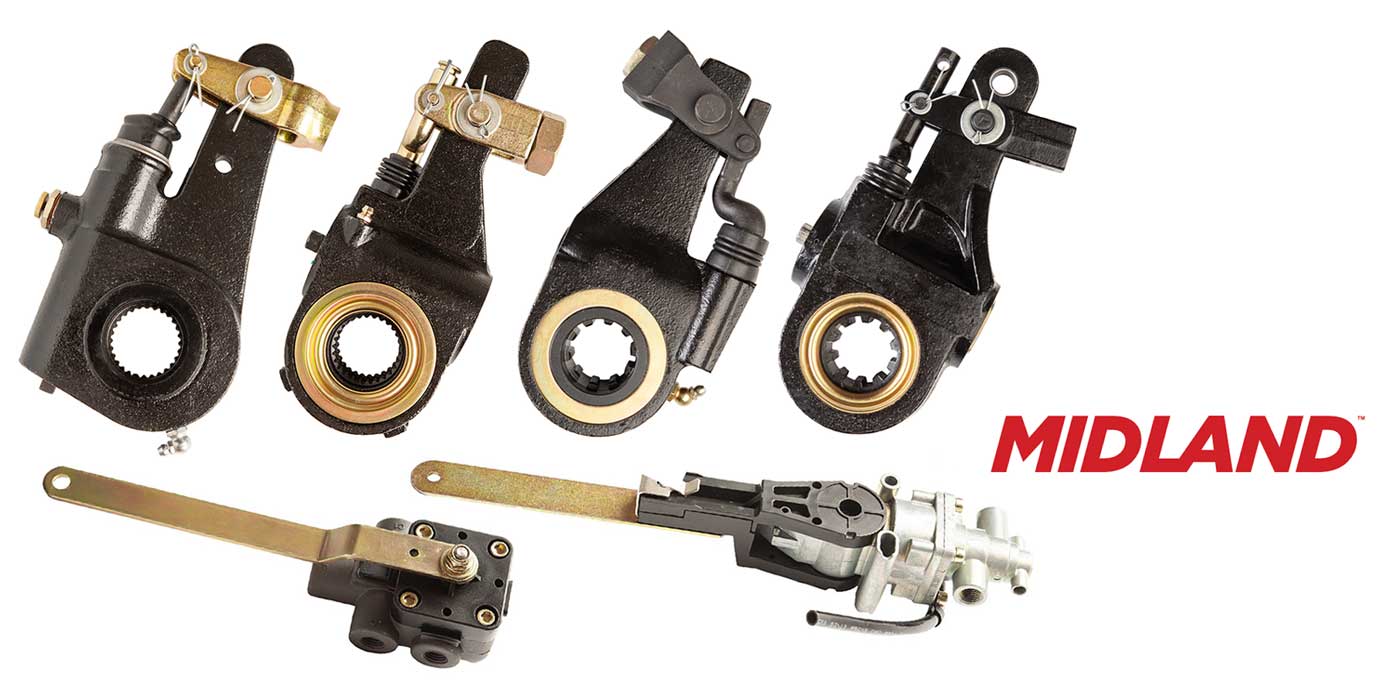You don’t need to tell maintenance managers that contamination of even very small amounts of precipitated wax in diesel fuel can cause serious problems. Properly blended diesel fuel—with the right additives—keeps fuel clean and engines running properly. The blending of additives is an exact science, which continues to be perfected.
Designed for performance
Diesel engines are complex, costly and ever-changing as engine OEMs strive to manufacture the most powerful and efficient equipment. In this quest for efficiency, temperatures and pressures in the engine are increasing while tolerances between moving parts are being reduced.
“These design elements, coupled with the variability of diesel fuel, have created a new reality in which the entire fuel system can benefit from additive technology,” says Alexandra Fersner, senior marketing analyst for Afton Chemical Corp. “Diesel fuel additives are designed to protect the entire fuel system from deposit formation, maintaining injector cleanliness while also preventing fuel filter plugging. The fleet benefits from improved uptime, fuel economy and reduced emissions, all of which translates directly to lower costs for fuel, maintenance and replacement parts, as well as reductions in unscheduled downtime. Spending a little on a robust fuel additive package can translate to big savings for your bottom line.”
Fersner explains that the additives are formulated and tested to deliver improvements in fuel economy, power and acceleration in both on- and off-road applications in a range of diesel fuels, including biodiesel blends.
“Keeping a diesel fuel system lubricated is critical to ensuring that friction and wear within high-pressure components, such as the fuel pump, is kept at a minimum to ensure longevity and efficient operation,” she says. “Our fuel additive solutions can be tailored to address specific challenges associated with variable fuel quality and a variety of engine configurations.”
Diesel fuel additives address a wide range of issues that can have profound effects on vehicle performance, regardless of whether the vehicle is a light-duty pickup, a Class 8 truck or off-road equipment.
“In some cases additives are required for an engine to operate properly,” says Greg Mathes, a product manager for Lubrizol, which offers a wide array of performance diesel additives designed to meet and exceed diesel fuel specifications. “In other cases, the additive provides extra benefits above and beyond that of normal unadditized diesel fuel.”
When investigating if a fuel additives package is right for your fleet, you’re likely to come across the following technologies.
Direct deposit
Diesel deposit control additives are often seen as being unnecessary; however, with engine manufacturers designing today’s engines to be more efficient and produce lower emissions, the fuel injectors are becoming smaller and more intricate with tighter tolerances. The combination of these sophisticated fuel injectors with combustion by-products and contaminants results in deposit formation that interferes with optimal operation.
“Deposit control performance is critical to ensuring that diesel engines continue to run like new,” Mathes says. “Deposits form on diesel engine fuel injectors as by-products of the fuel combustion process and trace contaminants, such as dissolved metals and soaps, adhere to the injector surface or inside the injector itself.”
Deposits can not only clog up fuel injectors but also cause them to stick, which negatively impacts fuel combustion. When injectors are not working well, fuel economy and power will suffer and costly injector replacements can become more frequent.
“Lubrizol’s deposit control additives can remove pre-existing deposits to restore engine performance and prevent new deposits from forming,” Mathes adds.
Additionally, with modern emissions technologies, keeping injectors clean can ensure optimal combustion, which can reduce the amount of diesel particulate filter regeneration cycles. “Diesel deposit control additives also work to prevent injector sticking and failures due to sticking, which can reduce maintenance and improve uptime,” Mathes says.
A benefits package
In addition to diesel deposit control, fuel additives can offer a host of additional benefits.
“Our deposit control technologies can be combined with additional active technologies such as cold flow improver, lubricity improver, cetane improver, fuel stabilizer and corrosion inhibitor in any configuration,” Afton’s Fersner explains, “to deliver solutions that meet a broad range of needs and satisfy the unique performance requirements of diesel engines, regardless of the application.”
To address fuel oxidation problems in new engine technology, for example, Ron Jessen, director of product management and business development for refined fuels for CHS, points to Cenex diesel fuel, which contains injection stabilizers that prevent internal diesel injector deposits from forming inside high-precision injectors.
“Our detergents keep fuel systems clean and performing at their optimum level, plus they clean injectors while preventing deposit build-up maintaining ideal injector spray pattern,” Jessen says. “We also offer cetane improver to provide quicker fuel ignition in the engine, as well as a lubricity improver, demulsifiers that force water to the bottom of the tank to allow for easy drainage and removal, corrosion inhibitors to prevent rust formation and storage stabilizer to reduce gun and varnish buildup.”
According to Kevin Adams, director of product development for Lubrication Specialties Inc., a cleaning chemical plus the maximum amount of Cetane boost are the keys to the company’s fuel additive offering.
“By running the proper fuel additives, the quality of fuel is increased, which provides a more efficient burn and protects the entire fuel system from rust and corrosion that would eventually lead to expensive repairs,” Adams says. “Both our Diesel Extreme and Everyday Diesel Treatment [EDT] contain water dispersants and lubricity agents to enhance the quality of the fuel and provide a consistent and powerful burn.
“With the added performance benefits and protection these formulas provide,” he continues, “fleet managers will be able to increase their bottom lines by adding these fuel additives to their fleets.”
“Cold weather performance can be something that is often taken for granted with the assumption that diesel fuel from any retail station, truck stop or fuel terminal is going to flow properly in very cold temperatures,” Lubrizol’s Mathes says, pointing to another additive benefit. “This can be greatly affected by a number of parameters, such as the amount of wax in the fuel, filling up in warmer climates and traveling north, or by adding additive when the fuel is already too cold.
“The fact is, flow improver additives are critical for diesel fuel to avoid clogged filters when starting up on a cold day or night, and not all products out there are created the same, so it is important to use an additive that has good cold filter plugging point [CFPP] performance in a wide range of test fuels.”
Diesel fuel contains wax and as the temperature drops, diesel fuel will form wax and gel. To prevent this from occurring, Lubrizol’s flow improver additives can be used to reduce the CFPP, which is a common ASTM test used to determine the lowest temperature at which a fuel should flow through a fuel filter.
“Additionally, Lubrizol also offers wax anti-settling agents [WASAs] in conjunction with our flow improver chemistry to prevent wax from settling out of diesel fuel when a diesel vehicle may spend a long period of time sitting in cold temperatures. An example of this is that many trucks and buses sit idle over the weekend in the middle of winter, and these vehicles need to be able to start at the beginning of the following week.”
Fuel for thought
CHS’s Jessen encourages fleet managers to utilize a diesel fuel that contains a complete additive package.
“This is the most effective way to increase power and fuel economy while reducing downtime—not to mention the peace of mind knowing you’re running a fuel that will extend the life of your equipment,” he says. “With today’s high pressure common rail engines, there’s an extraordinary amount of stress put on the fuel. Investing in a premium diesel fuel with a proven additive package can significantly impact savings.”
But how can you be sure that the additives are safe for your engines? As usual, the right supplier should be able to set your mind at ease thanks to robust testing.
According to Afton, its diesel fuel additives have been tested in rigorous laboratory bench, engine and vehicle dynamometer and on-road testing to demonstrate their performance. Much of the evaluation is generated on standardized test engines according to industry standard protocols to demonstrate the additive’s ability to keep the engines free of deposits that might otherwise rob them of fuel economy and diminish their overall performance. Testing is also performed on vehicle fleets in their daily environment, to simulate real-world capabilities.
“In addition to performance testing that ensures diesel equipment can operate at its optimal designed efficiency, laboratory bench tests are used to evaluate the performance of a package that contains additional chemical components, such as low temperature or corrosion additives,” Afton’s Fersner reports.
“Lubrizol follows a very stringent testing program for all additives to ensure a high level of performance and to ensure that additives do not impart any negative effects on fuel or vehicle [no-harms testing],” Mathes says, adding that Lubrizol utilizes both internal capabilities at fully accredited laboratories and fully accredited external independent facilities to perform performance and no-harms testing.
“For example, deposit control additives undergo rigorous engine testing to ensure that the additive performs as required. The CEC F-23-01 XUD-9, F-98-08 DW10B, and F-110-16 DW10C are just a few of the many industry-recognized tests that prove performance,” Mathes continues. “Lubrizol regularly performs these tests both internally and externally to validate deposit cleanup and prevention. In addition to the industry standards, Lubrizol also performs proprietary engine and vehicle testing to validate the results found on the stationary engine tests mentioned above. All of these assessments are used to validate data that focuses on restoring optimum fuel economy and power to vehicles, keeping injectors clean to prevent costly maintenance and improve reliability and to maintain this optimum performance through the continual use of the deposit control additive.”
Lubrication Specialties’ Adams explains that its additives are by the continuously run dynamometer testing to ensure the formulas are as strong as possible. This has showed gains in fuel economy as well as a reduction in exhaust opacity.















